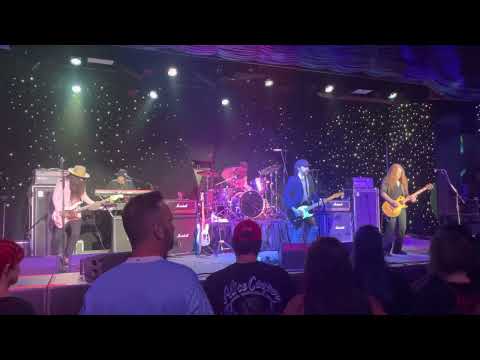![]()
A cultural titan might tower over their field, but few ever manage to straddle two. The scores of Ennio Morricone, who died in Rome aged 91 today (July 6) from injuries sustained during a fall, were every bit as influential on the world of music as cinema, his atmospheric evocations of gothic western America inspiring not only classic cinephiles like Quentin Tarantino but bands as varied as Muse, Scott Walker, Radiohead, Dire Straits, Orbital, Portishead, Nick Cave, The Last Shadow Puppets, David Guetta and Gnarls Barkley. His name was synonymous with spaghetti western culture, and its wider aesthetic influence, to the degree that it became a byword for the drama, tension and enormity of the western noir and a genre in its own right.

Born into a musical family in Rome in 1928, Ennio Morricone took up the trumpet at an early age and studied the instrument, and choral composition, in the 1940s. He first composed classical music and scores for theatre, progressing to film, TV and radio in the 1950s, ghost-writing scores while also arranging pop and jazz tracks. As his pop work continued into the 1960s, working with the likes of Francoise Hardy, Mina and Demis Roussos – his arrangement for Paul Anka’s ‘Ogni Volta’ sold three million copies worldwide – his film career began in earnest with his 1961 score for Luciano Salce’s Il Federale (The Fascist), the beginning of a long-running collaboration with the director. His early scores were for Italian comedies and costume dramas, but in 1964, the same year Morricone joined the Rome-based avant garde ensemble Il Gruppo, he began working with director and former schoolmate Sergio Leone on a series of westerns that would make his name.
The spaghetti western Leone pioneered on his Dollars trilogy – A Fistful Of Dollars (1964), For A Few Dollars More (1965) and The Good, The Bad And The Ugly (1966) – was a cross-breed of the classic American western storytelling and the gritty, violent Italian filmmaking style, and captured the imagination of ‘60s cinema audiences in large part due to Morricone’s music. Working on a limited budget, he substituted lush orchestration for whip-cracks, gunshots, whistles, trumpet fanfares, guitar and ominous voices – often provided by long-term collaborators Alessandro Alessandroni and Cantori Moderni – creating tense and visceral atmospheres around what had previously been a relatively family-friendly genre. It was music so enveloping and evocative that Leone would elongate scenes to include more of the soundtrack, and it would inspire legions of musicians, for decades to come, to emulate its earthy twangs on any track aspiring to the dark profundity of the mythic American heartlands. Metallica, for example, walk on to Morricone’s ‘The Ecstasy Of Gold’ to this day.

Morricone’s score for The Good, The Bad And The Ugly sold three million copies, and his soundtrack albums for subsequent Leone westerns would prove even more successful – released in 1972, his Once Upon A Time In The West score would sell 10 million (and include the Muse encore staple ‘Man With A Harmonica’). By then he’d become one of the most sought-after film composers in the world, working on numerous 1960s and ‘70s westerns as well as political thrillers, dramas, horror movies and comedies, composing as many as 20 soundtracks a year, forging notable collaborations with such directors as Mauro Bolognini and Italian horror visionary Dario Argento.
Over the coming decades, Morricone worked his magic on hundreds of movies across the genres, gaining particular acclaim, and several Oscar and Golden Globe nominations, for his work on the likes of La Cage aux Folles (1978), Days Of Heaven (1979), The Thing (1982), Once Upon A Time In America (1984), The Mission (1986), The Untouchables (1987) and Bugsy (1992). In 2016 he won an Oscar for his work on Tarantino’s The Hateful Eight, a shameless homage to Leone’s 1960s work which seemed conceived with a Morricone score in mind – indeed, it was the composer’s first western score in 34 years.

Having sold 70 million records, Ennio Morricone was a touring superstar in his own right, and performed his music live right up until January 2020. Now deeply embedded in popular culture, it will forever represent the fatalistic heroism of galloping into the great unknown, as steeped in myth and glory as the old west it evoked.
The post Ennio Morricone – 1928-2020: the legendary film composer who changed music forever appeared first on NME Music News, Reviews, Videos, Galleries, Tickets and Blogs | NME.COM.





